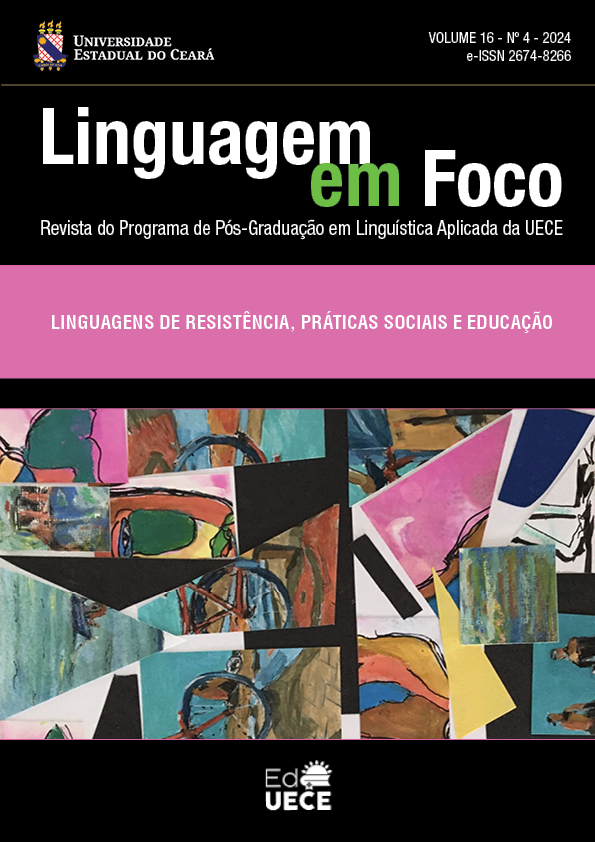La formación del profesorado en Ghana
pasado, presente y futuro
DOI:
https://doi.org/10.46230/lef.v16i4.15209Palabras clave:
formación del profesorado, trayectoria, ghanaResumen
La formación del profesorado está reconocida como un componente vital del desarrollo socioeconómico de todo país. Esto se debe a que el nivel académico y profesional de los profesores constituye un componente crítico de las condiciones de aprendizaje esenciales para alcanzar los objetivos educativos de una nación. Consciente de ello, Ghana adoptó la formación del profesorado y el sector ha evolucionado desde entonces. Sin embargo, la evolución del sector de la formación del profesorado en Ghana no ha sido cartografiada, analizada, sintetizada y compartida con la comunidad académica en un único artículo. Este artículo analiza críticamente la bibliografía (informes, textos políticos, documentos de trabajo, documentos gubernamentales y datos estadísticos de organismos gubernamentales) sobre los avances más significativos en la formación del profesorado en Ghana desde el pasado hasta el presente y prescribe la formación del profesorado deseada para el futuro.
Descargas
Citas
Abduljabbar, O.A. & Dauda, S. (2022). Teacher Education and National Development:The Nigerian and Zambian Experience. Zamfara Journal of Politics and Development, 3(3), 1-12.
Abukari, A. (2007). Financing basic teacher education in Ghana: looking beyond traditional funding sources. Middlesex University Occasional papers in Education and Lifelong Learning, 1 (1). pp. 27-43
Acheampong, K. & Furlong, D. (2000). Discussion Paper 7. Ghana: a Baseline Study of the Teacher Education System. Available on https://www.semanticscholar.org/paper/Discussion-Paper-7.-Ghana%3A-a-Baseline-Study-of-the-Akyeampong-Furlong/86509bb23d359014ced661ff29093ff2b3fb7cbf
Adegoke, K. A. (2003). Capacity Building of Lead Teacher Training Institutions in Sub-Saharan Africa: Ghana, UNESCO sponsored project-4500007474.
African Union (2019). African Teacher Qualification Framework: For Teacher Quality, Comparability and International Mobility. Addis Ababa: African Union.
African Union (2015). Continental Education Strategy for Africa (16-25). Addis Ababa: African Union.
Amofah, J. (2022). Challenges of 2022 Postings of Newly Trained Teachers and the Way Forward. Available on https://www.modernghana.com/news/1140712/challenges-of-2022-postings-of-newly-trained-teach.html
Ansah, F., & Swanzy, P. (2019). Affiliation policy rhetoric and reality in the Ghanaian higher education context. Journal of Higher Education Policy and Management, 41(2), 204-218. https://doi.org/10.1080/1360080X.2019.1575176 DOI: https://doi.org/10.1080/1360080X.2019.1575176
Ansah, F., Swanzy, P., & Obeng, R. A. (2019). No PhD, no tenure policy – Is it the best way forward? University World News.
https://www.universityworldnews.com/post.php?story=20190103090808316
Bernasconi, A.S. (2006). Does the affiliation of universities to external organizations foster diversity in private higher education? Chile in comparative perspective. Higher Education, 52, 303–342. doi:10.1007/s10734-004-5326-8 DOI: https://doi.org/10.1007/s10734-004-5326-8
GhanaDistricts. (2024). GhanaDistricts: A resource base for all local assemblies in Ghana. Available on https://www.ghanadistricts.com/
Ghana National Service Scheme (2024). About us. Available on https://www.nss.gov.gh/
Ghana Tertiary Education Commission. (2019). Roadmaps to Accreditation: Revised. Accra: Ghana Tertiary Education Commission
Jamal, N. (2022). Meaning, Nature and Scope of Teacher Education. Patna: Maulana Mazharul Haque Arabic and Persian University.
Kanayo V.A (2012). Preparing teachers for a changing world. Unpublished seminar paper Imo state university Owerri.
Kuhlee, D. (2017). The Impact of the Bologna Reform on Teacher Education in Germany: An Empirical Case Study on Policy Borrowing in Education. Research in Comparative & International Education, 12(3), 299–317. DOI: https://doi.org/10.1177/1745499917730733
Lavonen, J. (2020). Curriculum and Teacher Education Reforms in Finland That Support the Development of Competences for the Twenty-First Century. In F. M. Reimers (Ed.), Audacious Education Purposes: How Governments Transform the Goals of Education Systems (pp. 65-80). Cham, Switzerland: Springer Nature. DOI: https://doi.org/10.1007/978-3-030-41882-3_3
McWilliams, H.O.A. & Kwamena-Poh, M.A. (1975). The Development of Education in Ghana. London: Longman Group.
Rieckmann, M. (2019). Education for Sustainable Development in Teacher Education. An International Perspective. In S. Lahiri, (ed.), Environmental Education (pp. 33–48). Delhi: Studera Press.
Republic of Ghana. (2022). Education Budget Brief 2023. Accra: GOG
Sanyal, B.C. (2013). Quality assurance of teacher education in Africa. Addis Ababa: UNESCO- IICBA.
Swanzy, P. (2016). Quality assurance in ghanaian polytehnics: Perspectives and strategies of rectors, vice rectors and quality assurance officers. (Doctor of Philosophy Dissertation), University of Adelaide, Adelaide.
Swanzy, P. & Kwasi-Agyeman, F. (2023). Mapping Key Facts of Ghana’s Higher Education System. In B. Daniel & R. Bisaso (Eds), Higher Education in SubSaharan Africa in the 21st Century – Pedagogy, Research and Community-Engagement (pp. 183-204). Singapore: Springer DOI: https://doi.org/10.1007/978-981-99-3212-2_11
Transforming Teaching Education and Learning. (2024). Knowledge Hub: B.Ed. Resources. Accra: T-TEL.
United Nations Development Programme. (2012). 2010 Ghana Millennium Development Goals Report. Accra: UNDP/NDPC/GOG.
UNESCO. (2024). Education for Sustainable Development. Available on https://www.unesco.org/en/sustainable-development/education
World Bank. (2015). Countries and Economies. Retrieved on 2nd Jan, 2024 at http://data.worldbank.org/country.
Descargas
Publicado
Cómo citar
Número
Sección
Licencia
Derechos de autor 2025 Patrick Swanzy , Sandra Maria Gadelha de Carvalho, José Ernandi Mendes Mendes

Esta obra está bajo una licencia internacional Creative Commons Atribución 4.0.
Os autores que publicam na Linguagem em Foco concordam com os seguintes termos:
- Os autores mantêm os direitos autorais e concedem à revista o direito de primeira publicação. Os artigos estão simultaneamente licenciados sob a Creative Commons Attribution License que permite a partilha do trabalho com reconhecimento da sua autoria e da publicação inicial nesta revista.
- Os conceitos emitidos em artigos assinados são de absoluta e exclusiva responsabilidade de seus autores. Para tanto, solicitamos uma Declaração de Direito Autoral, que deve ser submetido junto ao manuscrito como Documento Suplementar.
- Os autores têm autorização para disponibilizar a versão do texto publicada na Linguagem em Foco em repositórios institucionais ou outras plataformas de distribuição de trabalhos acadêmicos (ex. ResearchGate, Academia.edu).





























